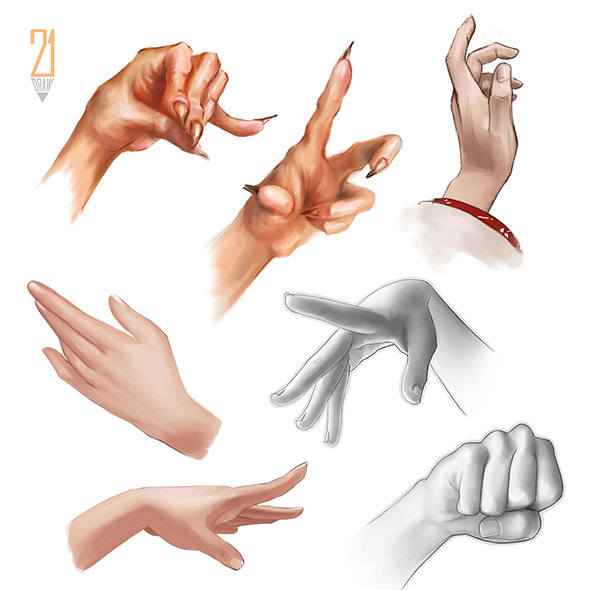
Today we thought we would give you some tips on many artists’ worst nightmare – drawing hands!
Hands are notorious in the art community for being one of the most difficult parts of the human body to draw.
This is because they are made of many small joints and ligaments that allow them to make countless complex poses. Just like anything else, when it comes to drawing hands, a huge part of improving is practice!
If you want to learn all about drawing the human body, we recommend checking out this course, ‘Fundamentals of Drawing’, by Maria Lia Malandrino.
To give you an idea of what you can expect in her course, here are a few tips and tricks for you that can make drawing hands so much easier!
The first thing you need to do when learning how to draw hands is to get a basic understanding of their anatomy.
In human anatomy, hands are made up of a total of 27 bones (this is including the wrist). Lots of different muscles, ligaments and tendons can also be found within the hand.
The muscles are the structures that can contract, allowing movement of the bones in the hand.
Ligaments are the tissues that help bind together the joints in the hand. The tendons connect muscles in the hand to the bone to allow movement.
In addition to these components, there are also arteries, veins and nerves within the hand that provide blood flow and sensation.
Due to the overall complexity of hands’ anatomy, it can be helpful to study medical diagrams of hands to get a better understanding of their overall bone structure and how they move.
Another important thing to note is that the skin on the palms of our hands will often be a slightly different colour to the rest of our skin.
In people with fair skin, this can often result in a pinkish tone, whereas people with darker skin may have lighter coloured palms compared to their overall complexion.
A great way to learn how to draw hands is by using the Loomis method, which as shown below, uses rectangles to break up the different proportions of the hand.
Maria Lia Malandrino does an amazing job of explaining this method in her course, ‘Fundamentals of Drawing.’
I recommend checking it out if you are looking for an awesome, in-depth look into drawing hands!
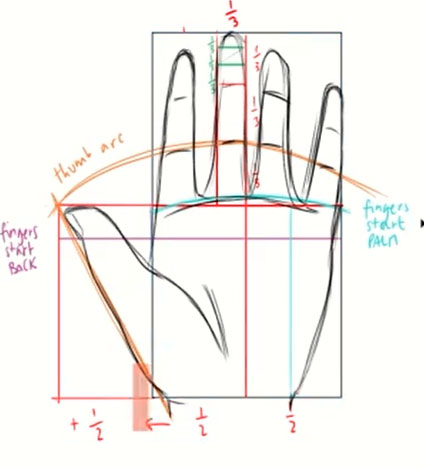
Finding reference images should always be one of your first steps when it comes to drawing something new. Try to find yourself hand photos with varying angles and poses.
This will ensure you get a well-rounded knowledge of how hands look. After some practice drawing, you will be able to illustrate them in any pose you want!
You can find great hand references on sites such as Sketch Daily and Pinterest—or even take photos of your own hand.
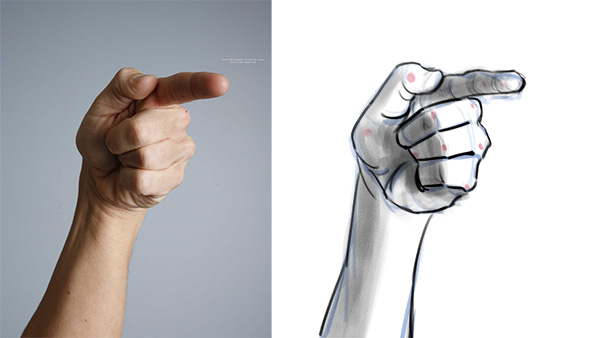
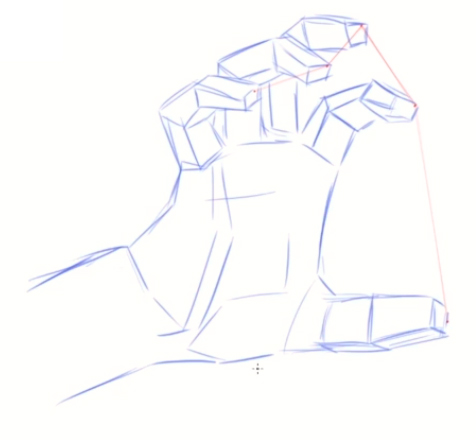
Hands will have different finger lengths and details depending on the age of your character. Babies have short and rounded fingers whilst the elderly have long fingers with more prominent ligaments and knuckles.
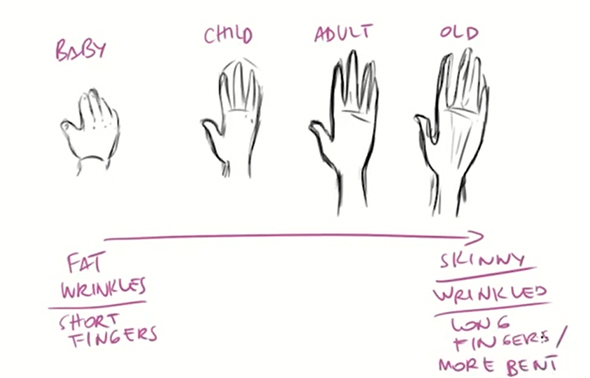
Do you want to know how to draw hands without any reference images? This simple method might be just what you need to get started!
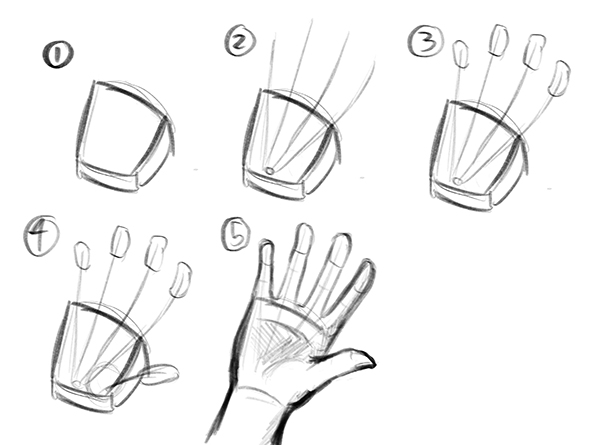
Now that you have learnt how to draw hands through these simple techniques, you can start illustrating a range of different hand gestures for your characters!
Looking for more awesome tutorials to help you develop your hand drawing skills? Check out ‘Fundamentals of Drawing’ by the amazing artist, Maria Lia Malandrino!
Rhea is an Australian concept artist who is currently studying at Griffith University. She is passionate about spreading her love of art to others.